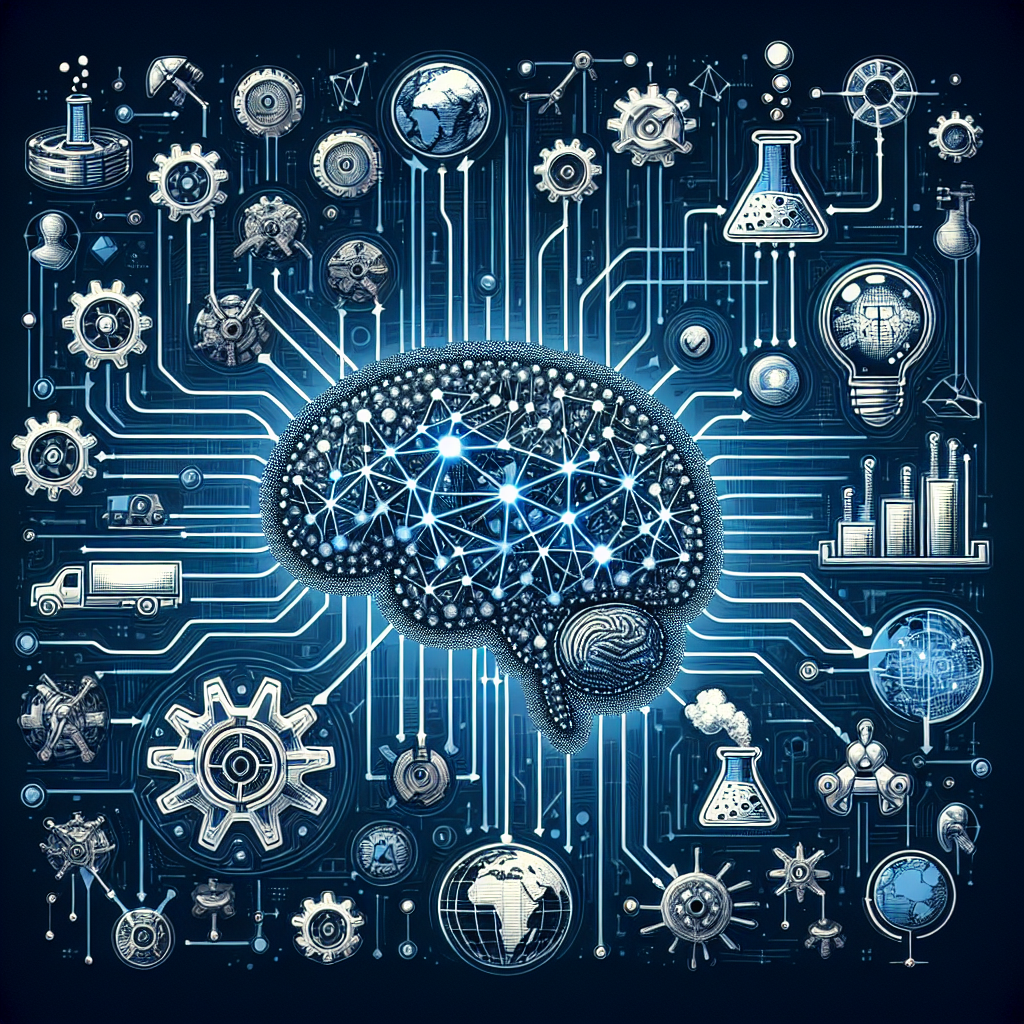Artificial General Intelligence (AGI) is a term used to describe a hypothetical form of artificial intelligence that possesses the ability to understand, learn, and apply new information across a wide range of tasks and domains. While current AI systems are typically designed for specific tasks and lack the general intelligence of humans, AGI has the potential to revolutionize industries in ways we can only imagine.
In this article, we will explore how AGI could revolutionize industries and the potential impact it could have on our society. We will also address some frequently asked questions about AGI and its implications.
1. Healthcare
One of the industries that could benefit the most from AGI is healthcare. With the ability to process vast amounts of medical data and analyze complex patterns, AGI could revolutionize diagnosis, treatment, and drug discovery. AGI-powered systems could assist doctors in making more accurate diagnoses, recommend personalized treatment plans, and even predict potential health issues before they arise. This could lead to faster and more effective healthcare outcomes, ultimately saving lives and reducing healthcare costs.
2. Finance
The finance industry is another sector that could be transformed by AGI. With the ability to analyze large volumes of financial data in real-time, AGI-powered systems could make more accurate predictions and decisions in stock trading, risk management, and investment strategies. AGI could also help detect fraud, identify market trends, and optimize portfolio management. This could lead to more efficient and profitable financial transactions, as well as more stable and secure financial markets.
3. Manufacturing
AGI could revolutionize the manufacturing industry by optimizing production processes, improving quality control, and reducing downtime. AGI-powered systems could analyze data from sensors and machines to identify potential issues before they occur, predict maintenance needs, and optimize production schedules. This could lead to increased productivity, reduced waste, and lower production costs. AGI could also enable more flexible and adaptive manufacturing processes, allowing companies to respond quickly to changing market demands.
4. Transportation
The transportation industry could also benefit from AGI by revolutionizing autonomous vehicles, traffic management, and logistics. AGI-powered systems could improve the safety and efficiency of self-driving cars, trucks, and drones by analyzing real-time traffic data, predicting road conditions, and adapting to changing environments. AGI could also optimize transportation routes, reduce congestion, and improve delivery times. This could lead to safer, more reliable, and more sustainable transportation systems.
5. Education
AGI could revolutionize the education industry by personalizing learning experiences, providing adaptive tutoring, and automating administrative tasks. AGI-powered systems could analyze student data to identify learning gaps, recommend personalized learning materials, and track progress over time. This could lead to more effective teaching methods, higher student engagement, and better learning outcomes. AGI could also help educators streamline administrative tasks, such as grading papers, scheduling classes, and managing student records.
FAQs about AGI:
Q: What is the difference between AGI and narrow AI?
A: Narrow AI is designed for specific tasks or domains, such as image recognition or language translation, while AGI possesses the ability to understand, learn, and apply new information across a wide range of tasks and domains.
Q: When will AGI become a reality?
A: The timeline for achieving AGI is uncertain, but some experts predict that it could be achieved within the next few decades. However, there are still many technical and ethical challenges that need to be addressed before AGI becomes a reality.
Q: What are the potential risks of AGI?
A: Some experts warn that AGI could pose risks to society, such as job displacement, privacy concerns, and the potential for misuse. It is important to carefully consider the ethical implications of AGI and develop safeguards to mitigate potential risks.
In conclusion, AGI has the potential to revolutionize industries in ways we can only imagine. From healthcare to finance, manufacturing to transportation, and education to entertainment, AGI could transform the way we live, work, and interact with technology. While there are still many challenges to overcome before AGI becomes a reality, the possibilities are endless. It is important for policymakers, researchers, and industry leaders to work together to harness the power of AGI for the benefit of society.

